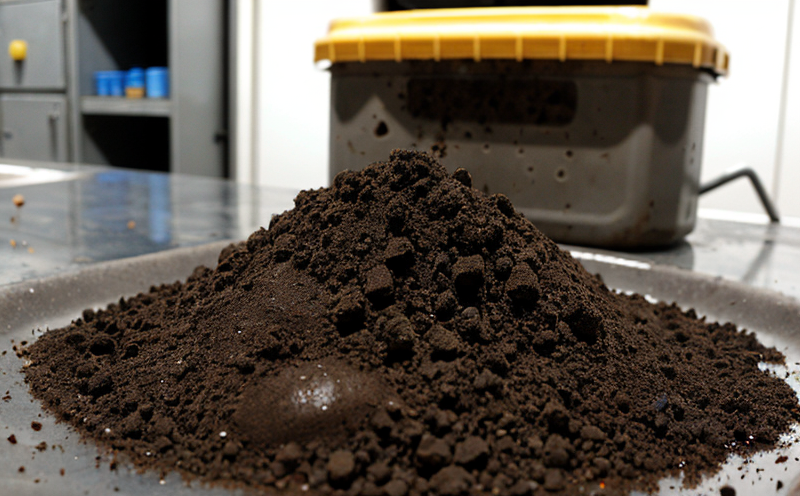Herbal Extract Residue Verification
In the realm of quality assurance and compliance within the pharmaceutical and food industries, ensuring that herbal extracts are free from unwanted residues is paramount. Herbal extract residue verification involves a meticulous process aimed at identifying and quantifying residual materials present in processed herbal ingredients. This service ensures not only adherence to regulatory standards but also guarantees product purity and efficacy.
The demand for natural products has surged globally, leading to an increase in the use of herbal extracts as active ingredients or functional additives in various formulations. However, the production process can introduce unintended residues such as pesticides, heavy metals, solvents, or other contaminants. These residues, if present beyond allowable limits, could compromise product safety and quality.
Our service employs advanced analytical techniques to comprehensively evaluate herbal extracts for a wide range of potential residues. This includes but is not limited to pesticides, fungicides, herbicides, heavy metals, solvents, and other contaminants that may pose health risks or affect the efficacy of the final product. By leveraging state-of-the-art laboratories equipped with sophisticated instrumentation, we offer accurate, reliable, and compliant residue verification.
The importance of this service cannot be overstated in today’s competitive market where consumer trust is paramount. Regulatory bodies such as the World Health Organization (WHO), United States Food and Drug Administration (FDA), European Medicines Agency (EMA), and others mandate stringent controls on herbal extract purity to ensure public health safety.
Our approach combines scientific rigor with practical application, ensuring that our clients receive precise data they can use to make informed decisions. From initial consultation through final report delivery, we provide a seamless service tailored to meet the specific needs of each client.
Why It Matters
The significance of residue verification in herbal extracts extends beyond mere compliance; it is essential for maintaining product safety and enhancing consumer confidence. Regulatory requirements are continually evolving, driven by the need to protect public health and ensure that products meet high standards of purity.
- Consumer Trust: Ensuring that herbal ingredients are free from harmful residues builds trust among consumers who increasingly demand transparency and quality assurance in their dietary supplements and medicinal formulations.
- Regulatory Compliance: Adhering to strict regulatory standards such as those outlined by the WHO, FDA, and EMA is crucial for avoiding legal penalties and maintaining market access.
- Product Quality: Residue verification helps maintain consistent product quality by identifying and eliminating potential contaminants that could affect efficacy or stability.
In a competitive marketplace, the ability to demonstrate compliance and superior quality can be a significant advantage. Companies that invest in robust residue verification processes not only meet regulatory requirements but also enhance their reputation as leaders in quality assurance.
Scope and Methodology
| Potential Residues | Analytical Techniques Used | Acceptance Criteria |
|---|---|---|
| Pesticides and Fungicides (e.g., Pyrethrins, Parathion) | Gas Chromatography-Mass Spectrometry (GC-MS), Liquid Chromatography-Tandem Mass Spectrometry (LC-MS/MS) | Acceptable limits according to WHO and FDA guidelines |
| Fungicides and Herbicides (e.g., Imidacloprid, Glyphosate) | High Performance Liquid Chromatography (HPLC), Mass Spectrometry (MS) | Acceptable limits as per regulatory standards |
| Heavy Metals (e.g., Lead, Mercury) | Inductively Coupled Plasma-Mass Spectrometry (ICP-MS), Flame Atomic Absorption Spectroscopy (FAAS) | Acceptable limits in compliance with WHO and FDA standards |
| Solvents and Contaminants (e.g., Methanol, Benzene) | Gas Chromatography (GC), High Performance Liquid Chromatography (HPLC) | Acceptable limits as per regulatory guidelines |
The methodology for residue verification includes a comprehensive sampling process, sample preparation, and subsequent analysis using highly sensitive instrumentation. Our team of experts ensures that each step is meticulously followed to deliver accurate results.
Competitive Advantage and Market Impact
- Accurate Compliance: By adhering strictly to international standards, we ensure clients remain compliant with global regulations, thus avoiding costly legal issues and maintaining market access.
- Innovation Leadership: Our advanced analytical techniques allow us to identify emerging contaminants early, providing a competitive edge in product development.
- Enhanced Reputation: Demonstrating robust quality assurance measures enhances brand reputation and builds consumer trust.
- Cost Savings: Early identification of potential issues through residue verification can prevent costly recalls and rework downstream in the supply chain.
The market for herbal extracts is rapidly expanding, driven by increasing demand for natural products. Companies that invest in robust quality assurance measures are better positioned to meet this demand while maintaining product purity and efficacy.





